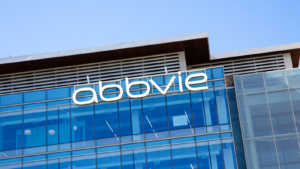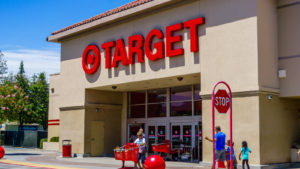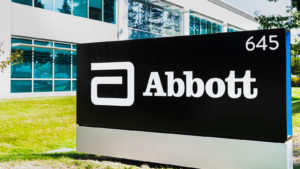The yield, expressed as a percentage of the current price, indicates the annual return on investment at the purchase price. Reinvesting dividends can significantly enhance returns due to compounding.
Divide the annual dividend per share by the share price to calculate dividend yield. For example, a $50 share paying $1.50 yields 3%. Factors affecting dividend yield include stock prices, market conditions, and company performance. A rising stock price generally lowers yield unless dividend payouts increase.
Industry trends also impact yields, which vary by sector. Larger, established companies typically offer higher yields than smaller, rapidly growing firms, which reinvest profits rather than pay dividends. High yields can signal either attractive income or underlying company problems, as declining stock prices may inflate yields.
Generally, a dividend yield between 2% and 6% is considered good, but individual investment goals and market context are essential in determining an appropriate yield. In this article, we look at three stocks yielding more than 2% while offering you exposure to a strong and healthy financial profile.
Let’s jump in and explore the top three high-yield dividend stocks.
AbbVie (ABBV)

AbbVie Inc. (NYSE:ABBV), a leader among high-yield dividend stocks, is a global biopharmaceutical company known for its strong product portfolio, including the blockbuster drug Humira. Investing in ABBV offers exposure to robust revenue streams from its immunology and oncology treatments.
AbbVie’s results and management’s outlook for FY24 and beyond boosted confidence in ABBV shares’ potential to outperform. Strong performance in the Immunology franchise, particularly with Humira, exceeds expectations despite biosimilar competition.
ABBV boasts a consistent dividend yield, making it attractive for income-focused investors. It has raised payouts by 11.4% annually over the past five years. Its extensive portfolio in medical devices, diagnostics, and nutrition offers multiple growth avenues, providing a buffer against any segment’s downturns.
Abbott pays a quarterly dividend of $1.55, translating into a solid yield of 3.6%.
Target (TGT)

Target Corporation (NYSE:TGT) is a leading American retail company with a reputation for strong operational efficiency. TGT is known for stable dividend payments, appealing to investors seeking both growth and income stability.
Target recently reported an F1Q24 EPS of $2.03, with same-store sales (SSS) falling by 3.7%, matching expectations, with declines in both traffic and ticket sales at 1.9%. Despite this, customers showed interest in new products and value offerings.
In-store sales dropped 4.8%, while e-commerce grew 1.4%, with same-day services rising nearly 9%, driven by over 13% growth in drive-up. Discretionary sales trends improved, particularly in apparel.
The retail giant has successfully grown its dividend by 11.1% annually over the past five years, supported by its effective omnichannel strategy and strong brand. This approach has enabled Target to thrive in a competitive retail environment.
The stock offers a generous 2.99% yield and is attractively valued, trading at 16.8 times trailing earnings. This makes Target appealing for value-oriented dividend investors looking for reliable income and potential growth. Its quarterly dividend payout stands at $1.12.
Abbott Laboratories (ABT)

Abbott Laboratories (NYSE:ABT), a notable player among high-yield dividend stocks, is a diversified healthcare company with strong positions in diagnostics, medical devices, nutrition, and branded generic pharmaceuticals. Investing in ABT offers access to a company with a robust pipeline and innovative products. Abbott’s consistent dividend growth and financial stability make it a solid choice for long-term investors.
Abbott recently raised its adjusted EPS forecast for the full year, now expecting $4.61 to $4.71, up from $4.55 to $4.70, with a consensus estimate of $4.63. The company anticipates organic sales growth (excluding COVID-19 testing-related sales) of 9.5% to 10%, an increase from 8.5% to 10%, and estimates at 9.54%.
For the third quarter, Abbott forecasts adjusted EPS of $1.18 to $1.22, compared to an estimate of $1.21. Abbott reported adjusted EPS of $1.14 in the second quarter, up from $1.08 year-over-year, beating the estimate of $1.10. Organic sales grew by 9.3%, below last year’s 11.5%, in line with the estimate of 9%.
Abbott has increased its dividend by 11.4% annually over the past five years. Its diverse portfolio across medical devices, diagnostics, and nutrition offers multiple growth avenues and a margin of safety against any segment’s downturns.
Abbott pays a solid 2.16% yield, but it is also one of the most expensive dividend growers. This is due to its robust financial profile, which attracts value-oriented investors.
On the date of publication, Shane Neagle did not hold (either directly or indirectly) any positions in the securities mentioned in this article. The opinions expressed in this article are those of the writer, subject to the InvestorPlace.com Publishing Guidelines.
On the date of publication, the responsible editor did not have (either directly or indirectly) any positions in the securities mentioned in this article.
Shane Neagle is fascinated by the ways in which technology is poised to disrupt investing. He specializes in fundamental analysis and growth investing.
